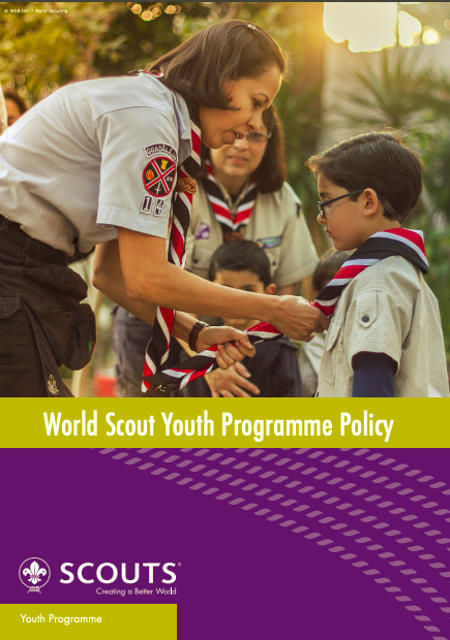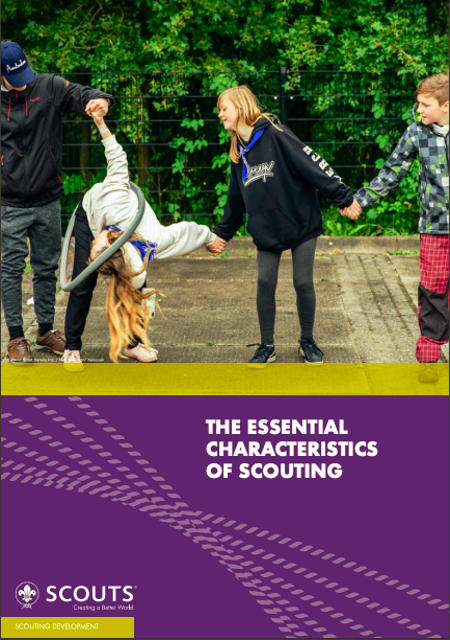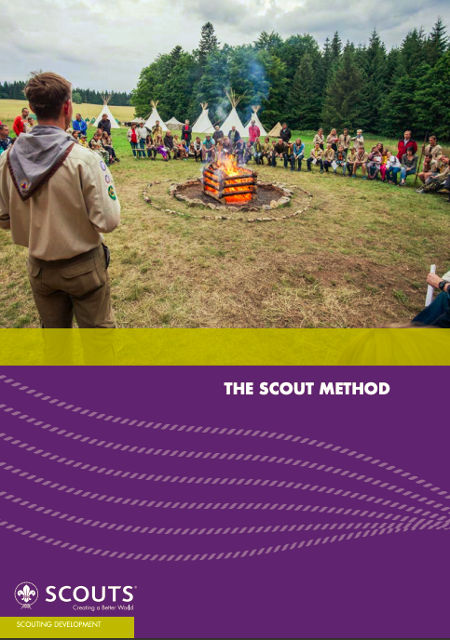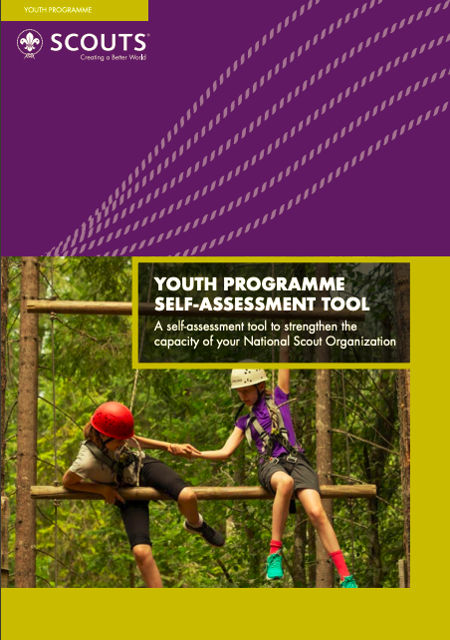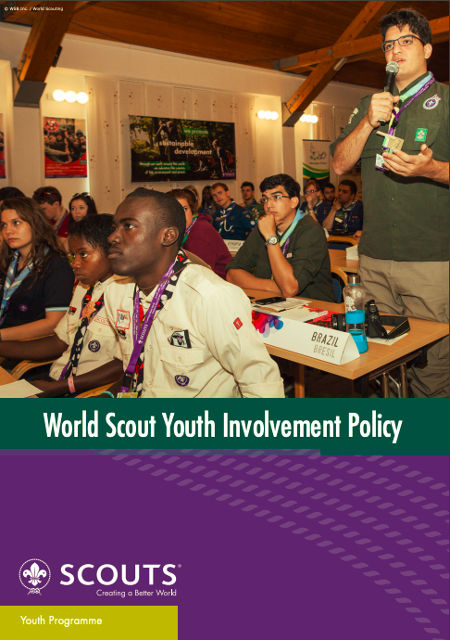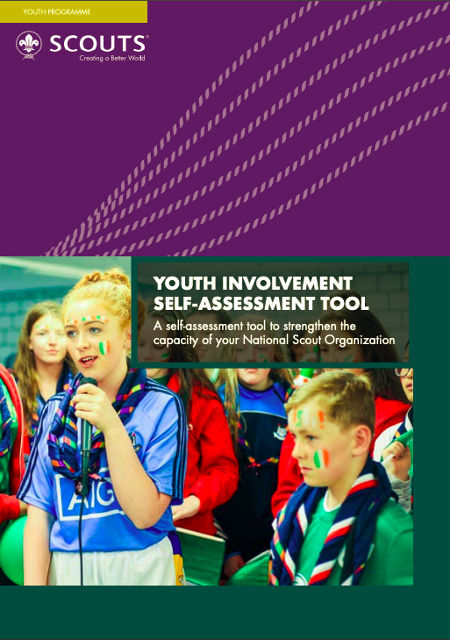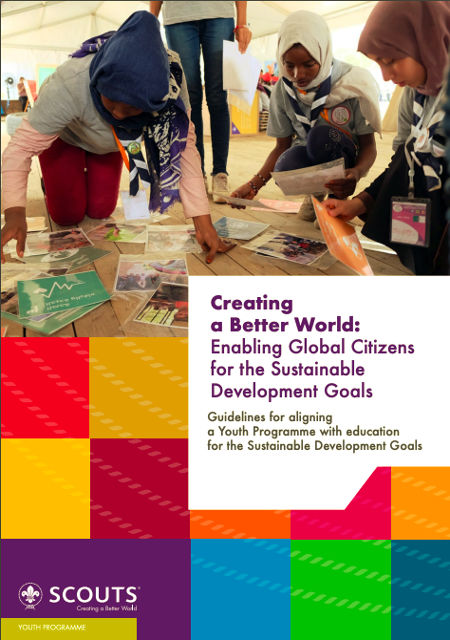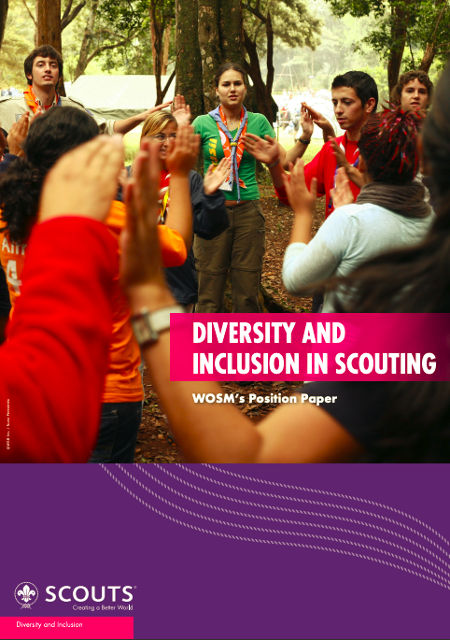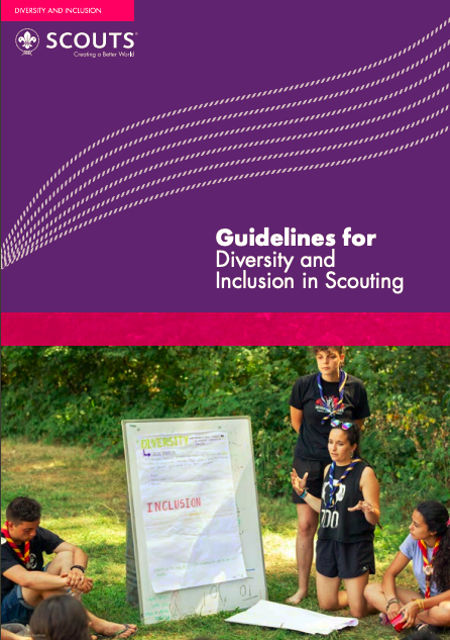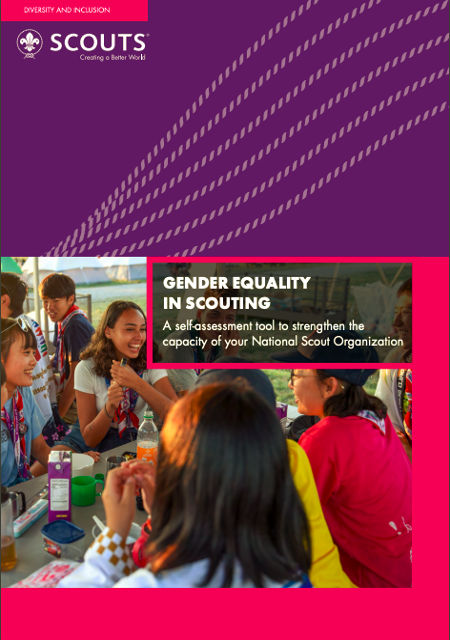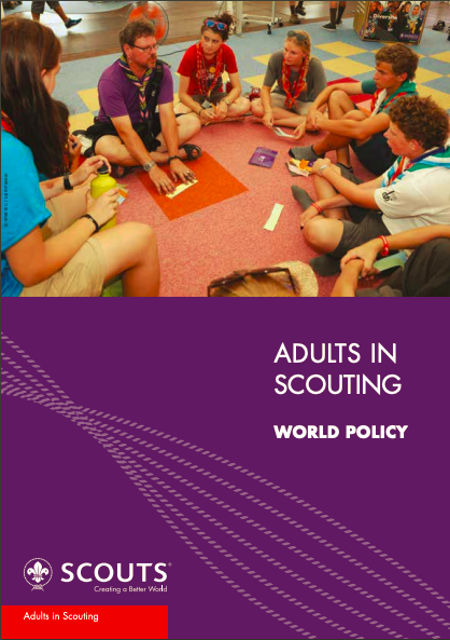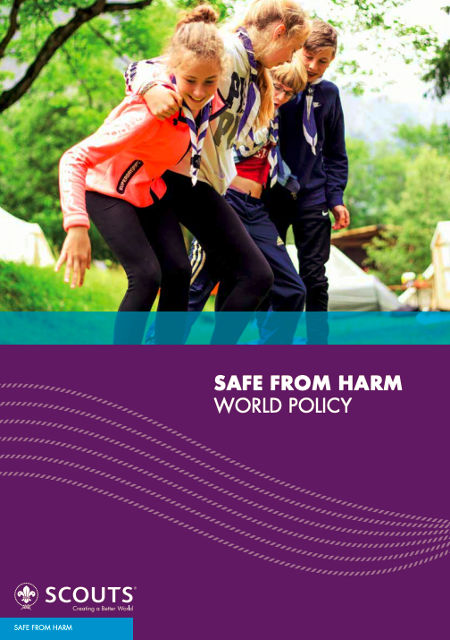World Scout Youth Programme Policy
The World Scout Youth Programme Policy is a framework, which provides guidance for the ongoing development of the Youth Programme in NSOs. Since its foundation, Scouting has been a non-formal educational movement. The Scout Programme is the procedure through which our Movement implements its educational purpose. Robert Baden-Powell (B-P) stated the elements of the programme in Scouting for Boys, first published in 1908, and updated in every single edition in the following 15 years. Reading it, we can find an explanation of What, How, and Why we are doing all that we are now doing in Scouting.
Essential Characteristics of Scouting
On the basis of WOSM’s Constitution, this paper provides a compact but comprehensive overview of the key elements which characterize our Movement and its mission. Within the framework of the work on the Strategy for Scouting, the World Scout Committee, through its Strategy Task Force, prepared this paper on “The Essential Characteristics of Scouting”. On the basis of WOSM’s Constitution, the paper provides a compact but comprehensive overview of the key elements which characterize our Movement and its mission.
World Scout Youth Involvement Policy
This policy aims at strengthening and ensuring youth involvement at all levels in the Scout Movement by providing directions for it in the World Organization of the Scout Movement. At the same time it serves as a reference to National Scout Organizations in the development of their national policies, as well as to WOSM Regions for improving their youth involvement practices.
Creating a Better World: Enabling Global Citizens for the Sustainable Development Goals
Discover in these guidelines practical guidance on why and how to create learning objectives for the SDGs, what learning opportunities can be added for scouts to learn about the goals, how other areas of Scouting can be aligned with the SDGs (governance, communications, partnerships, operations) as well as great practices from inside and outside of Scouting on education for the SDGs.
Diversity and Inclusion in Scouting - Position Paper
The main aim of this document is to be used as a reference for supporting National Scout Organizations (NSOs) in implementing national policies and strategies on Diversity and Inclusion. This document is also suitable to be shared with other stakeholders and external partners. Available in English, French and Spanish.
Guidelines for Diversity and Inclusion in Scouting
The Guidelines for Diversity and Inclusion are designed primarily for the use of adult members in National Scout Organizations to guide them as they work with their national, district, and local communities towards increasing youth membership through addressing issues of diversity and inclusion.
Gender Equality in Scouting
The Gender Equality Self-Assessment Tool will help your NSO assess the level of development and consistency of the rules and procedures introduced in the WOSM Diversity and Inclusion Guidelines. By answering the following questions, you will be able to identify areas of implementation that meet the expected minimum level of performance as defined in the WOSM Diversity and Inclusion Guidelines from the perspective of gender equity, and thus reflected in WOSM’s Quality Standard – the Global Support Assessment Tool (GSAT).
World Adults in Scouting Policy
The aim of the World Adults in Scouting Policy is, as with the World Scout Youth Programme Policy, to support the Mission of Scouting. This is achieved by developing the ways and means by which the quality of leadership at all levels can be improved through providing better support and management for all adults, resulting in the provision of better services for young people. Available in all 5 WOSM languages.
Safe from Harm World Policy
This policy aims to keep Scouts safe from harm by supporting the development of National frameworks with local effectiveness that will promote the wellbeing, healthy development and safety of children and young people by providing them with a safe environment throughout their time in the Scout Movement.

